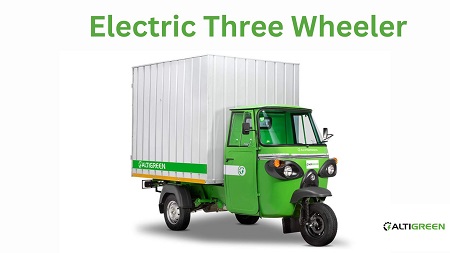The three wheeler segment holds significance in transportation due to its cost-effectiveness. They support entrepreneurs and small businesses in providing affordable and reliable transportation. Their compact size allows drivers to navigate through cuts and take U-turns easily. Also, they can drive through crowded streets and congested areas. Apart from all these features, choosing a 3-wheeler is a difficult decision for some users. This is due to their availability in different fuel variants. This is why this blog discusses different fuel variants to choose from according to business needs. All the three wheeler price ranges are affordable and we will discuss here types of 3 wheeler models.
Different Fuel Variants of 3 Wheeler Segment
The 3-wheeler segment has several models that come in different fuel variants. Know them.
1. Diesel Auto Rickshaw
Diesel-powered auto rickshaws cover larger distances with less fuel, reducing the overall operating cost of such a vehicle. This especially helps drivers who need to ply their vehicles for continuous goods transportation. Besides, diesel engines tend to return more torque, which translates to better performance either for heavier loads or when negotiating hilly areas.
2. Petrol Auto Rickshaw
Petrol-operating auto-rickshaws have easy maintenance, with even lower initial costs and lesser emissions than diesel engines. This makes them a good option for drivers who want ease of use and lower maintenance costs, operating within the city limits.
3. Electric Auto Rickshaw
An Electric auto rickshaw offers several benefits that make it an attractive option for modern-day transportation. Battery operating a 3-wheeler is far cheaper than petrol or diesel, offering impressive fuel cost savings. Environmentally, the electric auto rickshaw generates zero tailpipe emissions, something vital in ensuring a limited rate of air pollution and smaller carbon footprints.
4. Bi-Fuel Auto Rickshaw
Bi-fuel auto rickshaws, ones that can run on petrol as well as CNG, have some distinct advantages. One is flexibility in the choice of fuel used; drivers can shift to CNG from petrol based on the availability and cost of the former, resulting in significant fuel savings. The dual-fuel capability will further enhance operational efficiency and support sustainable practices within the transport sector.


